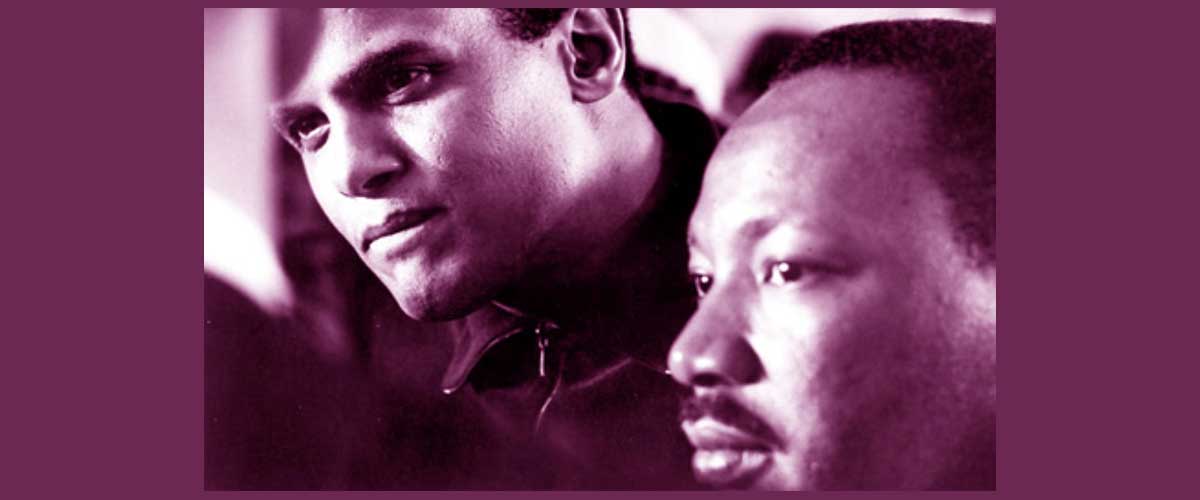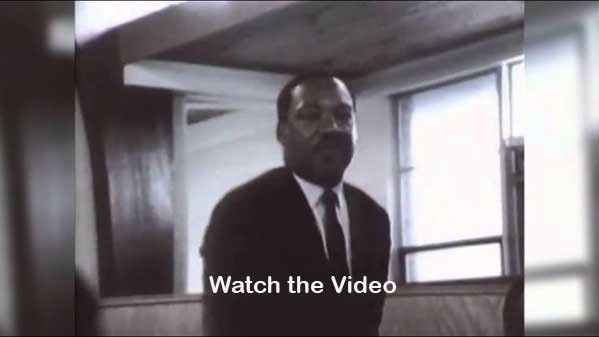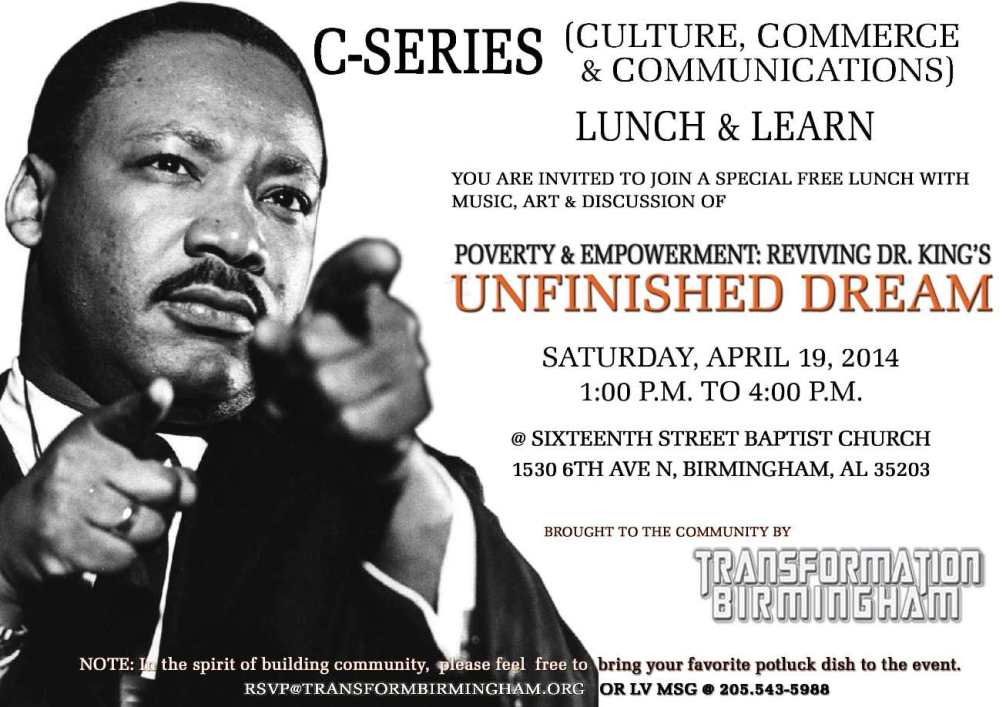The last item on Dr. Martin Luther King’s agenda was economics. He spoke about it the day before he was assassinated.
As a young reporter many years ago, I asked Harry Belafonte after this MLK Unity Breakfast speech, what would have been the next phase of the Civil Rights Movement had Dr. King lived. He said the economic agenda.
In recent years, I learned about the Poor People’s Campaign the Southern Christian Leadership Conference was planning (The Root has an excellent article on the campaign on its site on today, the 46th anniversary of Dr. King’s assassination.) It would have been something like the August 1963 March on Washington. While most people dub his sermon then the “I Have A Dream” speech, where the focus is traditionally on blacks and whites living together in harmony like piano keys.
But the march is formally called “The March on Washington for Jobs and Freedom.” And in that speech he says,
In a sense we have come to our nation’s capital to cash a check. When the architects of our republic wrote the magnificent words of the Constitution and the Declaration of Independence, they were signing a promissory note to which every American was to fall heir. This note was a promise that all men, yes, black men as well as white men, would be guaranteed the unalienable rights of life, liberty, and the pursuit of happiness.
It is obvious today that America has defaulted on this promissory note insofar as her citizens of color are concerned. Instead of honoring this sacred obligation, America has given the Negro people a bad check, a check which has come back marked “insufficient funds.” But we refuse to believe that the bank of justice is bankrupt. We refuse to believe that there are insufficient funds in the great vaults of opportunity of this nation. So we have come to cash this check — a check that will give us upon demand the riches of freedom and the security of justice.
His sense of justice for African Americans always had at its core economic inclusion as a integral part of fairness and inclusion. How that economic agenda looked to him came into clearer focus later in life, as he consulted with other thinkers and activists who had been trying to solve the perplexing challenge of persistent poverty in the Black community in particular, and in certain areas of the country.
He He was clearly looking for more than just quotas and set-asides, and knew the government as well as the private sector would have to play a role in leveling the playing field. For instance, in another of his final speeches, he said the government provided an economic floor for white peasant immigrants, and that, in the Poor People’s campaign, he was leading a march to “get our check.”
And in his speech the night before his April 4, 1968, assassination in Memphis, he said:
Now the other thing we’ll have to do is this: Always anchor our external direct action with the power of economic withdrawal. Now, we are poor people. Individually, we are poor when you compare us with white society in America. We are poor. Never stop and forget that collectively — that means all of us together — collectively we are richer than all the nations in the world, with the exception of nine. Did you ever think about that? … That’s power right there, if we know how to pool it.
Some of these and other lesser-known quotes of Dr. King will be discussed during the next C-Series Lunch & Learn discussions at Sixteenth Street Baptist Church on April 19, 2014.
April 19th C-Series Lunch & Learn
Poverty & Empowerment: Reviving Dr. Martin Luther King Jr.’s Unfinished Dream (Examining the Economic Agenda in His “I’ve Been to the Mountaintop” Sermon)
TRANSFORMATION BIRMINGHAM seeks to pick up the Movement from the point where Dr. Martin Luther King, Jr., shared an economic agenda to all Americans. In his last speech, Dr. King directed African Americans to identify their assets, pool their resources and strengthen their institutions to generate wealth and build a greater economic base within their community.
Fifty years later, strategies to solve daunting problems related to racism, poverty, chronic under-employment, cradle-to-prison- pipeline, unstable families, crime, and juvenile delinquency, neighborhood deterioration, and under-performing schools continue to hamper the long-term economic growth for many Americans. However, as compared to the general population, these problems disproportionately impact African Americans more often than other ethnic minorities.
Guest Panelists:
Bob Dickerson, Executive Director at the Birmingham Business Resource Center and CEO of Foundation Capital
Richard Dickerson, Senior Director Strategic Communication at USAID and President of RAD Communications
Jerry Mitchell, President/CEO of the Alabama State Black Chamber of Commerce
Charles Ball, Executive Director at Regional Planning Commission of Greater Birmingham
David Ramp, Public Information Officer and Lender Relations Specialist for the U.S. Small Business Administration
Visit the Facebook Event Page to RSVP for this event.



